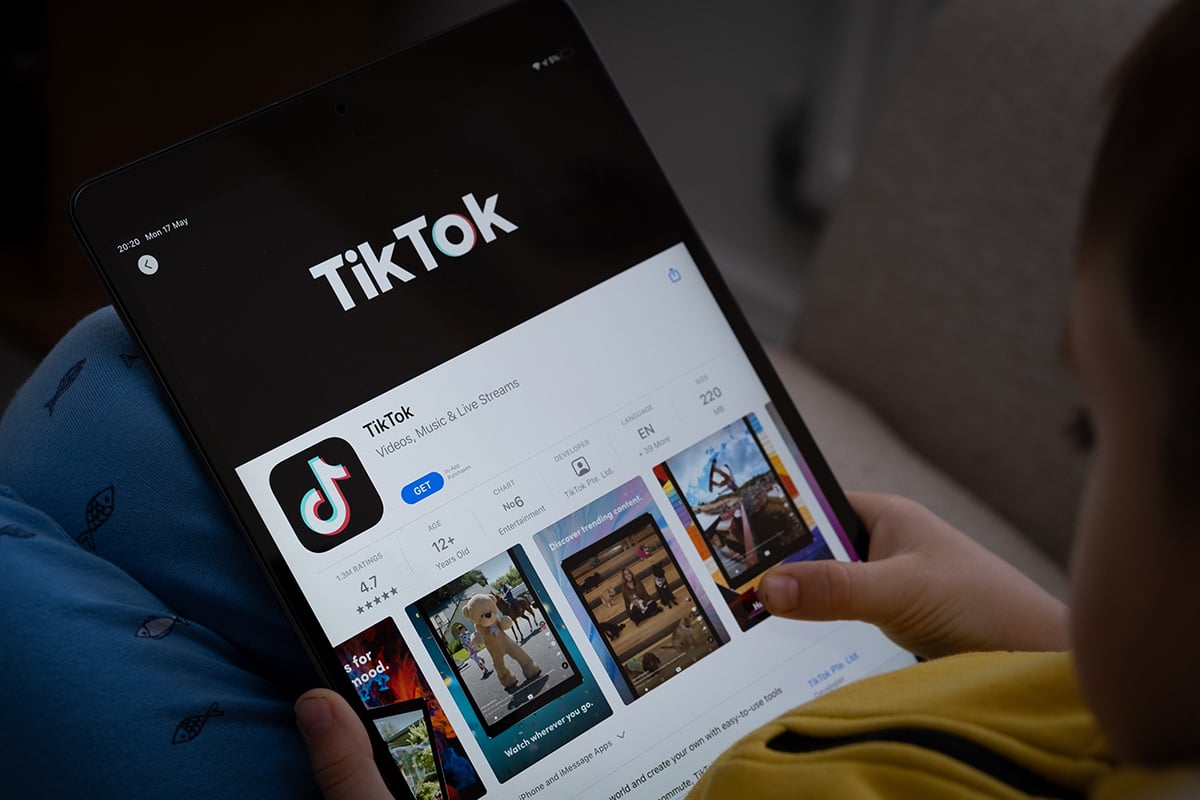A coalition of 14 state attorneys general has taken legal action against TikTok, claiming that the platform has exacerbated a mental health crisis among children and teenagers. The lawsuits, spearheaded by New York Attorney General Letitia James and California Attorney General Rob Bonta, allege that TikTok’s design and business model deliberately aim to keep young users engaged, which, they argue, has detrimental effects on their mental health.
At the center of the lawsuits are concerns about the addictive features of TikTok. These include the app’s infinite scrolling function, which encourages prolonged screen time, and viral “challenge” videos that sometimes promote unsafe behaviors. Additionally, notifications sent at night are said to disrupt sleep, contributing to mental health problems among younger users.
Each lawsuit has been filed independently by the states involved, but they collectively add to the growing legal challenges TikTok is facing in the U.S. Apart from this wave of state lawsuits, TikTok is contending with a potential nationwide ban, a federal lawsuit for allegedly mishandling children’s data, and other state-level lawsuits.
Rising Regulatory Scrutiny
TikTok has been under the microscope of regulators for some time. In June, New York enacted a law aimed at curbing the negative effects of social media algorithms on children, requiring platforms to present content in chronological order for users under 18. The goal is to reduce the influence of algorithms that promote endless content to keep young users engaged.
Similarly, 42 state attorneys general recently called on U.S. Surgeon General Vivek Murthy to impose warning labels on social media apps, cautioning about the risks to children’s mental health.
Though TikTok claims to prioritize user safety with features such as parental controls and screen-time limits, the lawsuits argue that these measures fall short. The attorneys general maintain that TikTok’s real objective is to increase time spent on the platform to drive ad revenue, especially from younger users.
Profit Over Protection
The lawsuits accuse TikTok of intentionally fostering addictive behavior among children and teens to maximize profits. The platform’s recommendation algorithms, which serve users an unending stream of captivating content, are cited as a key factor in this strategy. Attorneys general claim this compulsive use is harmful, interfering with young people’s development and their ability to focus on school and other responsibilities.
New York Attorney General Letitia James asserts in her lawsuit that TikTok is well aware of the harmful impact its platform has on minors. The complaint references internal documents indicating that TikTok considers children under 13 a key audience, despite the platform officially being for users aged 13 and older.
Additionally, the lawsuits highlight TikTok’s enormous financial success in the U.S., generating $16 billion in revenue in 2023. Of this, $2 billion is reportedly from ads aimed at teenagers. According to the lawsuits, these figures demonstrate how the company prioritizes profit at the expense of young users’ safety.
Harmful Effects on Body Image and Risky Challenges
Beyond its addictive content, the lawsuits also point to specific features that negatively affect young users’ mental health. One major concern is TikTok’s use of beauty filters, which enhance users’ appearances to fit unrealistic beauty ideals. The attorneys general argue these filters contribute to harmful comparisons and body image issues among teenagers.
The lawsuits also highlight the dangers of viral challenges on TikTok. One incident mentioned involves a Brooklyn teenager who died earlier this year while participating in the “subway surfing” challenge, which gained popularity on TikTok. Despite efforts to remove dangerous content, the lawsuits claim that such viral trends continue to put young users at risk.
Seeking Accountability
The lawsuits are not just aimed at penalizing TikTok financially; they also seek to enforce meaningful changes to the platform. The states hope to recover profits made from ads targeting children and teens and to push TikTok to overhaul its platform to better protect its youngest users from harmful content and addictive behavior.
As TikTok faces increasing pressure from regulators and legal entities, the outcome of these lawsuits could significantly affect how the platform operates in the U.S., especially regarding its approach to safeguarding young users.







